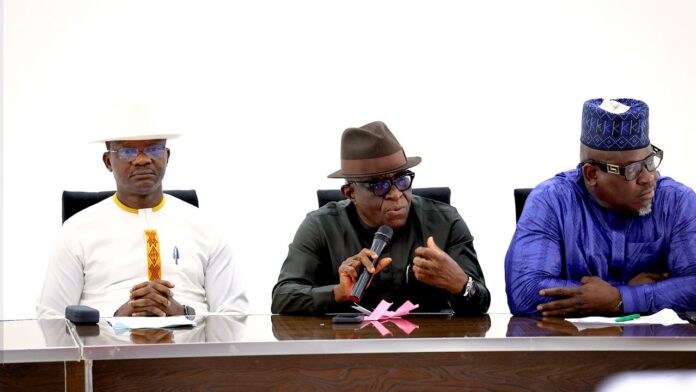The Delta State Government is taking bold steps to improve electricity supply across the state — and it’s doing it in a brand-new way that puts power directly into the hands of the people.
In a press briefing held in Asaba, the Commissioner for Economic Planning, Mr. Sonny Ekedayen, announced that the state has approved a mini-grid electricity model and created new regulatory bodies to manage how electricity will be generated and distributed.
This development is part of Governor Sheriff Oborevwori’s MORE Agenda, which focuses on building better infrastructure and improving services like roads, water, and now—electricity.
What’s a Mini-Grid and Why Is It Important?
In simple terms, a mini-grid is a smaller, independent electricity system that provides power to a specific area or community. Unlike the large national electricity grid, which can go down and leave many areas without power, a mini-grid keeps power local and stable. If one area has a problem, it won’t affect everyone else.
According to the Commissioner, different companies will be allowed to manage electricity in different parts of Delta State. These companies will handle everything—from generating power (through gas, solar, hydro, etc.) to distributing it to homes and businesses.
“This new system will bring more reliable and steady electricity to Deltans at affordable prices,” Ekedayen said.
New Laws to Make It Happen
Earlier this year, the Delta State House of Assembly passed a new law based on the Federal Government’s 2023 Electricity Act. That law gave states the power to control their own electricity systems, and now Delta is using that power.
With this law, the state now has the right to create its own electricity market—meaning Delta can make its own rules, give licenses to power companies, and monitor how they perform.
Key Bodies Approved by the State Government
To make this new electricity system work smoothly, the Delta State Executive Council (EXCO) has approved the following:
- Delta State Electricity Commission: This will be the main regulator. It will issue licenses, make sure rules are followed, and help solve problems between power companies and consumers.
- Rural Electricity Agency: This group will focus on bringing power to rural areas that are often forgotten, ensuring everyone gets electricity—not just the cities.
- System Operator: A technical expert who will coordinate how power is generated and shared in different locations.
- Market Operator: This body will track how much power is supplied, make sure providers follow quality standards, and ensure people get the minimum hours of electricity promised.
Private Investment, Not Government Spending
Interestingly, the entire system will be privately funded. That means the state government will not spend public money to build power stations. Instead, private companies will do the work, while the government makes sure everything is fair and safe.
“Our role is to create the rules and the environment for businesses to succeed. The private sector will do the investment,” Ekedayen explained.
Helping the Process Run Smoothly
To guide this big transformation, the state will also hire a consultant. This expert will help develop a clear roadmap and provide advice so the electricity reform is done the right way—avoiding mistakes and ensuring long-term success.
Ekedayen admitted that this is new territory for many states in Nigeria, but Delta is ready to lead.
“Only a few states have gone this far,” he said. “But we are committed to delivering a working electricity system that creates jobs, supports businesses, and improves the quality of life for our people.”
What Does This Mean for You?
If you live in Delta State, this new electricity model means you may soon see better power supply, fewer blackouts, and more opportunities for education, business, and even entertainment—because power affects almost every part of life.
It also means young people, like students and tech enthusiasts, can dream bigger with more access to reliable electricity for reading, learning, and creating.
With these approvals, Delta State is officially beginning its journey toward an independent, people-focused electricity market. If all goes well, the state could become a model for the rest of Nigeria in how to deliver cleaner, fairer, and more reliable power to its citizens.
Delta is truly giving power to the people—and it’s just getting started.



